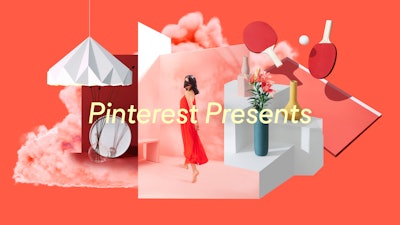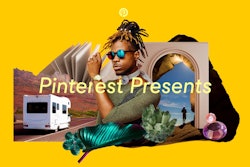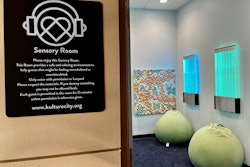
“Inspiration begins with inclusion,” said Judy Lee, the global head of experiential marketing for Pinterest. “Inspiration is such a core part of our DNA as a brand and company, and we’ve found that we can’t inspire people if they can’t participate or if they can’t see themselves in what we produce.”
The social media platform recently put that statement to the test at Pinterest Presents, the brand’s first-ever global advertiser summit, on March 3. Held virtually in six countries around the world—the U.S., the U.K., France, Germany, Canada and Australia—the gathering saw speeches from the likes of American Express’s Walter Frye, Havas Group’s Yannick Bolloré, Dentsu Media Canada’s Alex Panousis and other business leaders.
To ensure the virtual summit was fully inclusive, Lee and her team worked with Diversity & Inclusion at Conference and Events—otherwise known as DICE—which provides certification and guidance to help events deliver a representative and diverse set of speakers, perspectives and attendees. DICE awarded Pinterest Presents a score of 100% for its accessibility-related efforts, which were created in consultation with disability activist Sinéad Burke, the founder of consulting company Tilting the Lens.
“Our vision was to produce this summit like a television program, rather than an in-person event that was moved online,” explained Lee, adding that the goal was to give the brand’s advertising and marketing partners a glimpse into the future and announce new products, including a new Pinterest Predicts trends section, new video ad functions and more. “But to truly inspire, we knew we needed to be inclusive.”
 The event announced several new products, including a new Pinterest Predicts trends section, new video ad functions and more.Photo: Courtesy of Pinterest
The event announced several new products, including a new Pinterest Predicts trends section, new video ad functions and more.Photo: Courtesy of Pinterest
Lee, Burke and the rest of the team worked to ensure that accessibility and inclusivity were front of mind throughout the entire planning process. “For example, on the email invite, we asked our attendees if they had any accessibility accommodations. And while the overall percentage of requests was low, it’s a good place to start signaling to disabled communities that we’re thinking of them and building for them in our experiences,” pointed out Lee. “We also utilized colors that make it easier for people to see, and we incorporated closed captioning and sign language interpreters for those who cannot hear. It’s all just a start in this process.”
Following the event, Pinterest also plans to create a dedicated accessibility board in the U.S., U.K. and Canada markets, with the goal of providing brands and agencies with a curated collection of content and resources to advance accessibility, diversity and inclusion in their own organizations and work.
The Pinterest team also worked to create a customized experience for attendees in each country. “Oftentimes when things are created globally, it’s really just U.S.-developed content that’s given to other markets,” noted Lee. “We worked closely with our teams around six key markets to co-create the programming, and developed six unique agendas that were relevant to people in their markets. For instance, our CEO delivered a talk, but we customized the insights and introductions to be relevant for each market.”
Lee continued, “We also had closed captioning available in English, French and German, and we had sign language interpreters for our Canada, U.K. and U.S. markets.”
For planners who want to make their own events more inclusive, Lee offered three main tips:
Commit. “Creating inclusive experiences is important to me and my team,” she said. “We were all committed to doing what we could to make this an accessible experience.”
Learn. “Do your research and/or hire a consultant like Sinéad. If you’re new to this, it’s okay. We didn’t expect to hit a home run from the outset, but we were committing to learning and doing our best to make this a part of our standard ways of working,” Lee explained.
Plan. “When you write up your project or creative brief, make [inclusivity] a part of it. If you don’t have all the answers, ask the questions—especially if you’re working with an agency,” she advised. “I learned quite a bit during this process, and I expect to continue learning. This was the first time we worked with sign language interpreters, but the process isn’t that far off from our regular localization and translation—we simply needed to build in a bit more time to have that added to the final edited content.”
Lee added, “At Pinterest, our mission is to bring everyone the inspiration to create a life they love, and we understand the power behind the word everyone. We’re excited to continue working with partners like DICE and Tilting the Lens, and pushing ourselves to the highest of standards to make our events and offerings more accessible than ever.”



















